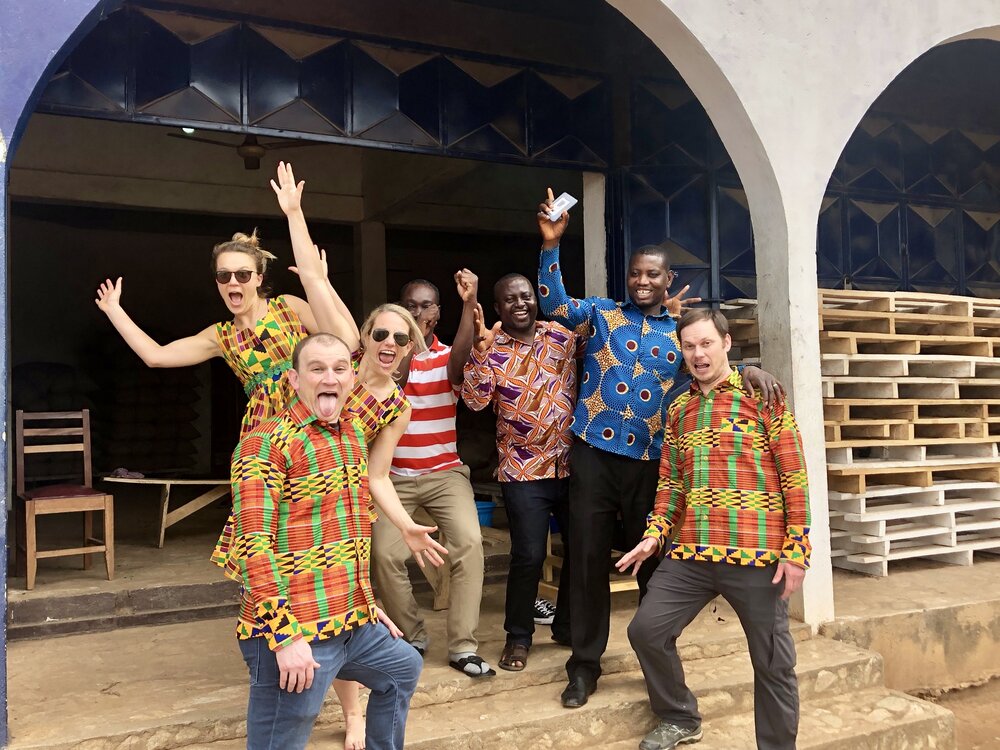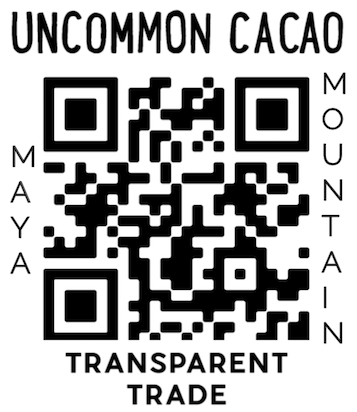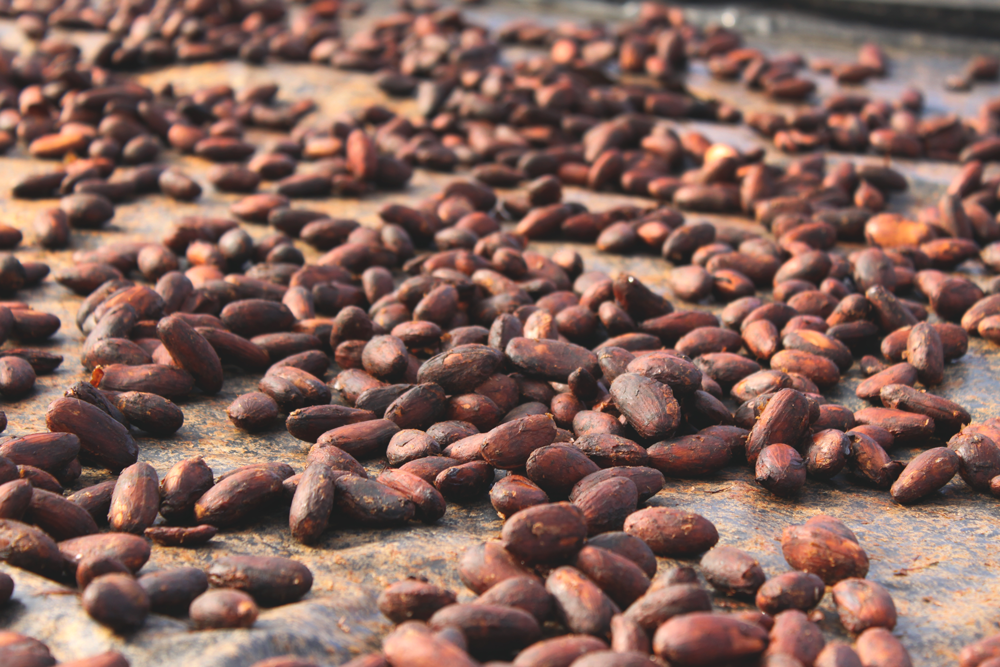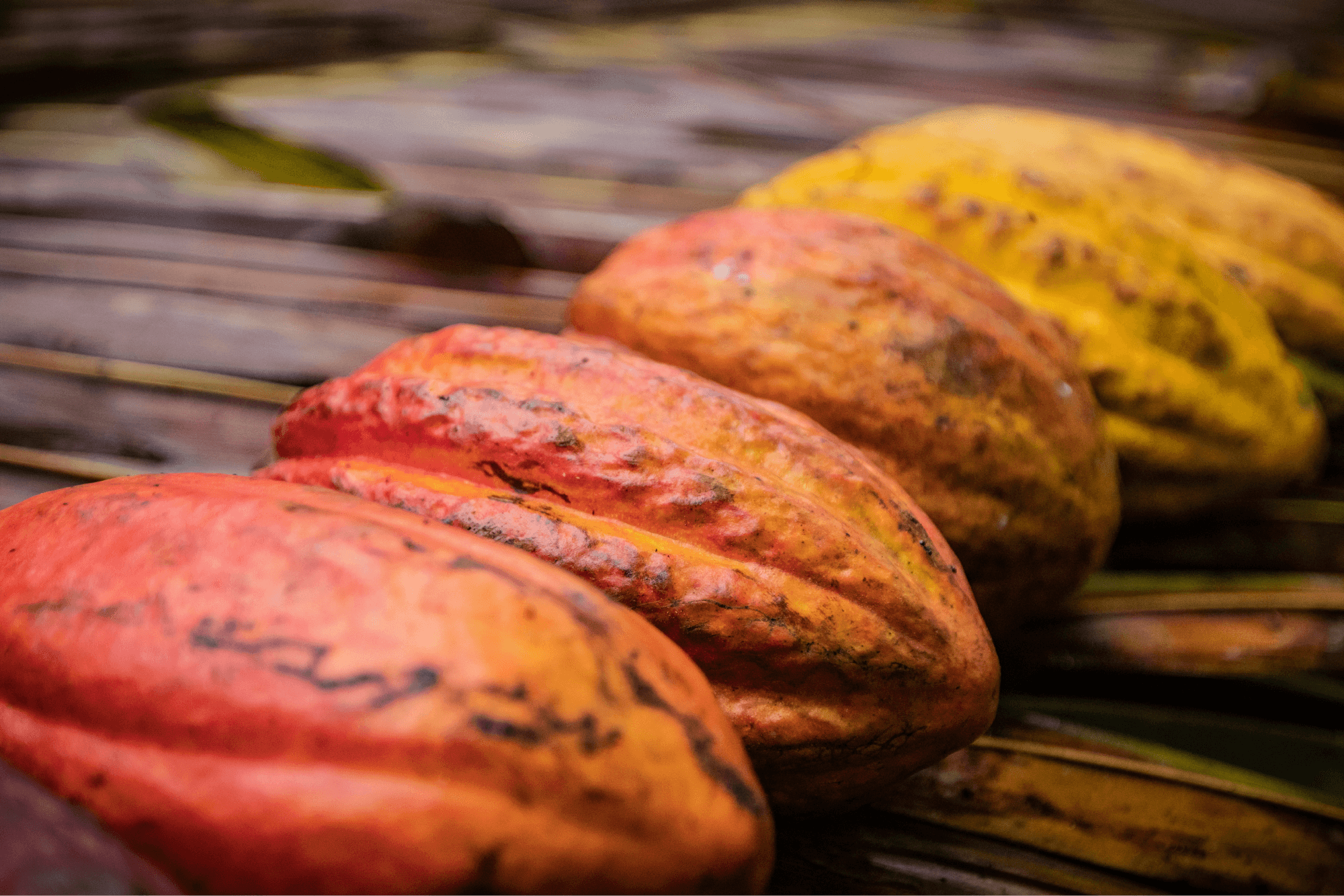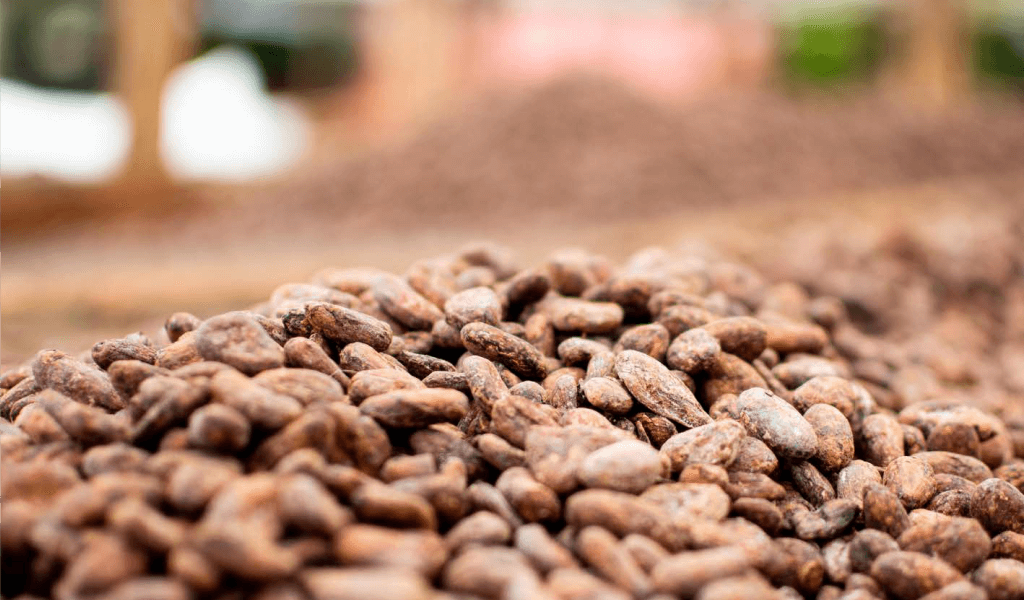What a year! I initially got excited thinking about the opportunity to share some lessons learned and takeaways I have from a year of testing, tasting, hunting, and discovering cacaos. When I started to compile my thoughts, though, the task suddenly seemed daunting. I wondered how I could summarize 12 months of experiences and growth into a concise list. I am extremely fortunate to have this role at Uncommon Cacao - maintaining relationships with our existing suppliers, and cultivating new ones, all with our vision and mission as a company in mind: sustainable livelihoods for farmers.
I know I will inadvertently simplify certain elements of my experiences for the sake of concisely sharing my points. I hope for understanding and promise to elaborate on specific origin stories throughout the year.
Lesson #1: Challenge your assumptions.
Ghana, February
This year we brought on ABOCFA, our first cocoa supplier from the African continent. Since Uncommon Cacao started, we have received many inquiries about why we did not source from West Africa. Our answer used to reference the customary list of complications surrounding traceability and child labor. Even I thought traceable good quality cacao was out of the question.
When I heard about ABOCFA, the cooperative in Ghana that provides cocoa to Tony’s Chocolonely, I was surprised to learn that their cocoa was not only certified organic and fair trade, but they also had full traceability systems in place. Jesse Last, from Taza Chocolate, had started working with the cocoa and confirmed that it was clean and delicious. This was not what I had expected, and I was intrigued.
After evaluating and approving a pre-shipment sample, we traveled to visit the ABOCFA cooperative. This is usual policy that we follow at Uncommon - we prefer to visit our suppliers before we contract, confirming that our expectations around transparency, quality and reliability can be met. I was thrilled to see that Stephen, the cooperative’s manager, had put in significant work to help ABOCFA reach a more specialty market. He has worked for years to remediate child trafficking and labor in their supply chain. He ensures farmers get paid by the licensed buying company, and then ensures that the democratically-decided allocation of the premiums from Fair Trade, Organic and (now) quality are distributed at the end of the harvest season and communicated transparently to all of the cooperative’s stakeholders.
While the broader supply chain dynamics in Ghana are far more complex than I have shared here, I am excited that we have found a way to work in a market that we previously dismissed as being incompatible with our company ethos. I look forward to sharing more about this origin in months to come!
Lesson #2: Relationships can be everything. Take the time for them.
Dominican Republic, March
In March this year, I visited Öko Caribe with one of our customers. Öko Caribe was the first origin I visited when I started working for Uncommon Cacao, because I knew I would learn the ideal way to centrally ferment and dry cocoa. After all, Gualberto and Adriano, the co-founders and owners of the company, were some of the first to centrally ferment cacao in the Dominican Republic. It was so great to be back again, saying hello to familiar employees and visiting farms I hadn’t seen before.
One thing that I truly under-estimated about Öko Caribe was how much work they put into their relationships with farmers. There is competition for cacao amongst exporters in San Francisco de Macoris. The whole Duarte province is chock-full of cocoa buyers and processors, and Öko Caribe has to compete to get volume. Gualberto and Adriano used to work for Conacado (a huge cooperative union, likely the largest in the Dominican Republic) as buyers and technical assistance employees. It was the relationships they formed during this time that have held the strongest in the development and growth of Öko Caribe. We met a third generation farmer whose father had sold to Adriano at Conacado, and now he himself sells to Öko Caribe, demonstrating the strength of those early relationships.
Belize, April and December
April is the start of the peak cacao harvest season in Belize, and I traveled there with a group of chocolate makers, Zak’s, Ritual, and Maverick. These makers have been using MMC beans since almost the beginning of our business and were finally able to visit, see the facility, and meet the team members and farmers that produce these incredible beans. It is because of the dedication of these customers, and customers like them, to this origin that we remain inspired and able to continue buying beans from the farmers in the MMC network. I think chocolate makers often underestimate the importance of their continued cacao purchases-even if volumes shift or some years are skipped. This loyalty to specific origins is foundational to stable growth.
At Maya Mountain, in particular, it is our promise to farmers that we continue to buy year-round, and that we come to their farm to collect their beans. Ever since Maya Mountain put Belizean cacao on the specialty map, other buyers have come at the start of the harvest season, promising a high price. They purchase the volume they want, and then stop, leaving farmers who sell to them without a market. Maya Mountain will be there, consistently buying, when these other customers are not.
A large contributing factor boosting MMC’s commitment to farmers to continually buy cacao is the chocolate makers who are, in turn, committed to this origin. Without confidence in the market, Maya Mountain wouldn’t be able to keep this promise to farmers year after year.
Lesson #3: Keep trying.
Colombia, June
We hosted our first Colombia Chocolate Week this year, in June. At the end of the trip, I traveled to Tumaco to check up on the associations we work with. Cacao de Colombia started working with new associations this year, so I wanted to meet them and check out their facilities, as well as revisit our original partners.
Tumaco has come extremely far in the 8+ years that Cacao de Colombia has worked in the region. One of the community organizations, Bajo Mira, announced this year that their cacao growing community is officially a coca-free zone. Illicit substances are no longer grown, processed, nor sold out of their community. Even with this news, however, the cacao processing facility the community has needs work, and needs to be expanded. They are only capturing about 10% of the volume potential from the region, mostly due to limited drying space. After all of the effort already spent, they are continuing to roll up their sleeves, seek investment, and grow their business.
We also visited one of the farmers in the association Cortepaz. In order to reach his farm we needed to walk, as the road was bad due to heavy rains. It took us an hour, fighting our way through knee-deep mud for 1 mile (no exaggeration, I have the videos to prove it). Apparently, it takes the farmer about 20 minutes to walk this distance, in this mud, with his fresh cacao for sale on his back. Each week, he takes as many trips as are necessary to deliver his freshly harvested cacao and get paid by the association.
It always leaves me awestruck and inspired to visit Tumaco. No matter the challenges, no matter the victories, the communities and individuals I meet never give up.
Uganda, October
Another new product added to our lineup this year is Semuliki Forest, from Latitude Trade Company in Western Uganda. I traveled to Bundibugyo, where the company is based, with a couple of trouble (read: chocolate) makers, to check out the origin and see what progress they’ve made since they began operations in 2017. Jeff, the managing director there, has made a lot of progress towards making change for the cocoa industry in Western Uganda.
While there, I was fortunate to meet a young Ugandan man, Max, who is managing the processing facility, focused on quality. He has been working with Jeff for many years now in other businesses as well as Latitude Trade Company. I was lucky to steal some of Max’s time to talk to him about his passion for this work, and what keeps him motivated.
Max told me that his father used to quote Gandhi, telling him to, “Be the change you wish to see in the world.” Thus, when he approaches his work, he chooses to exemplify how he thinks it should be done, which is thoroughly and well. His intention is to continue to work on his quality control until he has fulfilled his purpose of creating change for the company, and for the cocoa industry.
